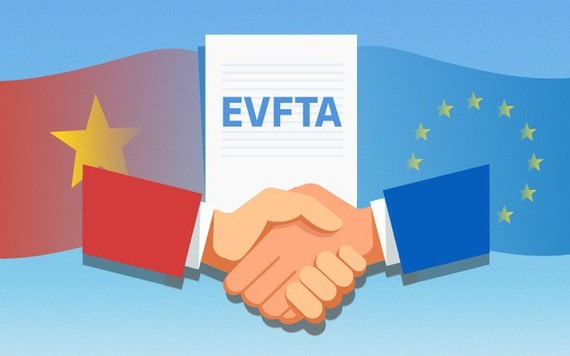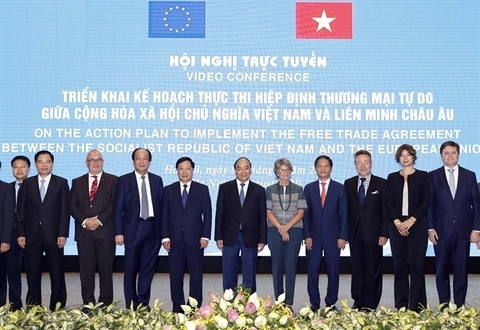 |
|
Illustrative image |
The plan aims to assign tasks and responsibilities to agencies and organisations to decide on measures to implement the agreement.
To achieve this, in addition to regular tasks, ministries, governmental agencies and the People's Committees of centrally-run provinces and cities need to concretise and organise the implementation of basic tasks such as communicating information about EVFTA and markets of EU countries; building laws, institutions; and improving competitiveness and developing human resources.
They must also promote trade and investment promotion programmes in EU countries to inform business communities of other countries about the opportunities and advantages of Vietnamese business and investment environment and attract foreign investment in key areas.
Along with that comes building programmes to support and improve competitiveness for industries and businesses, while preparing solutions for industries and commodities greatly affected by the agreement and helping Vietnamese enterprises participate in regional and global production networks, value chains and supply chains.
In addition, they must focus on industrial restructuring, creating a foundation for industrialisation and modernisation; accelerating restructuring agriculture and rural economy; strengthening measures and mechanisms to encourage and orient foreign-invested enterprises to connect with domestic enterprises, contributing to the formation and development of supply chains. — VNS

Reform urgently needed for Vietnam to make use of EVFTA
Vietnam needs to reform its trade mechanisms while local businesses are advised to be more proactive to take advantage of the European Union - Vietnam Free Trade Agreement (EVFTA).

Ministry leaders discuss action plan to implement EVFTA
Vietnamese enterprises have been urged to renovate their business strategies if they want to benefit from the EU-Viet Nam Free Trade Agreement (EVFTA),